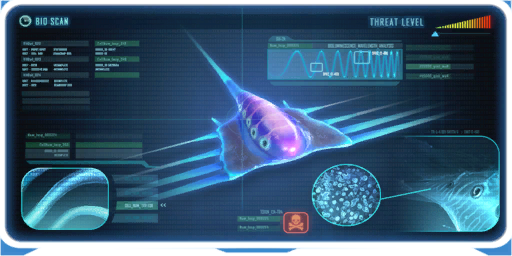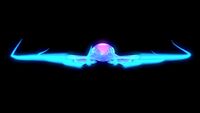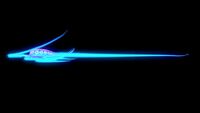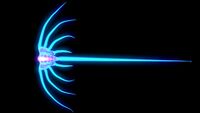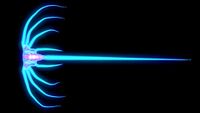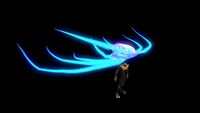Jellyray: Difference between revisions
Terranhawk (talk | contribs) (What) |
Edgelord2001 (talk | contribs) (fixed gender) |
||
| Line 4: | Line 4: | ||
* [[Mushroom Forest Caves]]|size = * [[File:Jellyray Egg.png|30px]] 4 (2x2) |
* [[Mushroom Forest Caves]]|size = * [[File:Jellyray Egg.png|30px]] 4 (2x2) |
||
* [[File:Jellyray.png|30px]] 9 (3x3)|incubation = * [[File:Alien Containment.png|30px|link=Alien Containment]] 1 (day/s)|bioreactor = * [[File:Jellyray Egg.png|30px]] +119 Energy |
* [[File:Jellyray.png|30px]] 9 (3x3)|incubation = * [[File:Alien Containment.png|30px|link=Alien Containment]] 1 (day/s)|bioreactor = * [[File:Jellyray Egg.png|30px]] +119 Energy |
||
* [[File:Jellyray.png|30px]] +350 Energy|dna = |item_id = <i>jellyrayegg</i>}} |
* [[File:Jellyray.png|30px]] +350 Energy|dna = |item_id = <i>jellyrayegg</i>}}The '''Jellyray''' is a passive [[fauna]] species that can be found roaming in the [[Mushroom Forest]] and [[Deep Grand Reef]]. |
||
The '''Jellyray''' is a passive [[fauna]] species that can be found roaming in the [[Mushroom Forest]] and [[Deep Grand Reef]]. |
|||
==Appearance== |
==Appearance== |
||
| Line 20: | Line 19: | ||
{{Recipe2}} |
{{Recipe2}} |
||
{{Recipe2|page = Jellyray Egg}} |
{{Recipe2|page = Jellyray Egg}} |
||
{{Clear}} |
{{Clear}} |
||
| Line 32: | Line 30: | ||
This species has adapted to low-light environments with a translucent, luminescent body. |
This species has adapted to low-light environments with a translucent, luminescent body. |
||
# Luminescent Body:<br />This adaptation may help to light up the surrounding area for foraging, ward away predators, and identify the organism to others of its kind.<br /> |
# Luminescent Body:<br />This adaptation may help to light up the surrounding area for foraging, ward away predators, and identify the organism to others of its kind.<br /> |
||
# Light-Sensitivity:<br />Smaller creatures have been seen swimming in the jellyray's wake to take advantage of the light source for their own ends, and the ray itself will approach light sources, perhaps mistaking them for others of its own species. |
# Light-Sensitivity:<br />Smaller creatures have been seen swimming in the jellyray's wake to take advantage of the light source for their own ends, and the ray itself will approach light sources, perhaps mistaking them for others of its own species. |
||
Assessment: Inedible |
Assessment: Inedible |
||
| Line 54: | Line 51: | ||
**Jellyrays possess highly poisonous flesh and as such, they have few natural predators - a trait shared with the other ray-species and probably developed by their common ancestor. |
**Jellyrays possess highly poisonous flesh and as such, they have few natural predators - a trait shared with the other ray-species and probably developed by their common ancestor. |
||
*Jellyrays are bottom-dwellers, preferring to glide over the seabed. This suggests they're detritivores - surviving from organic waste that settles down on the seabed. This is further supported by the databank entry of the [[Spadefish]]. |
*Jellyrays are bottom-dwellers, preferring to glide over the seabed. This suggests they're detritivores - surviving from organic waste that settles down on the seabed. This is further supported by the databank entry of the [[Spadefish]]. |
||
* The Jellyrays shape is similar to the Facehugger, creature from the Ridley Scott movie ''Alien'' |
|||
==References== |
==References== |
||
Revision as of 14:51, 3 May 2018
Template:Class 2 FaunaThe Jellyray is a passive fauna species that can be found roaming in the Mushroom Forest and Deep Grand Reef.
Appearance
The Jellyray possesses a translucent, constantly glowing body. It has a long, thin tail and six, smaller undulating tentacles protruding from each side of its body. The main body glows a violet hue, with bright pink patterns on its back, the rest of the creature glows a light blue colour.
The Jellyray has six circles of various sizes on each side of its torso. These circles could possibly be its eyes, however it is unknown what their purpose is.
Behavior
Jellyrays aimlessly glide around, dragging their tentacles behind them when doing so and emitting high pitched cries.
They are curious about light, and can usually be seen investigating any nearby light sources.
Energy Value
(no target detected)
Data Bank Entry
|
This species has adapted to low-light environments with a translucent, luminescent body.
Assessment: Inedible |
Gallery
Trivia
- The sounds of the Jellyray were created from wolf howls.[1]
- The Jellyray is closely related to the Ghostray which also has a subspecies, the Crimson Ray, and is related to the Rabbit Ray. This is confirmed by the PDA datalogs, which states that they all share a common ancestor.
- The data bank entry also suggests that Crimson Rays and Ghostrays had a predatory ancestor.
- Jellyrays possess highly poisonous flesh and as such, they have few natural predators - a trait shared with the other ray-species and probably developed by their common ancestor.
- Jellyrays are bottom-dwellers, preferring to glide over the seabed. This suggests they're detritivores - surviving from organic waste that settles down on the seabed. This is further supported by the databank entry of the Spadefish.
- The Jellyrays shape is similar to the Facehugger, creature from the Ridley Scott movie Alien
References
Lua error in package.lua at line 80: module 'Dev:Navbox' not found.




